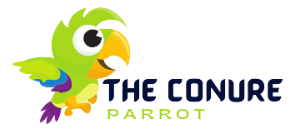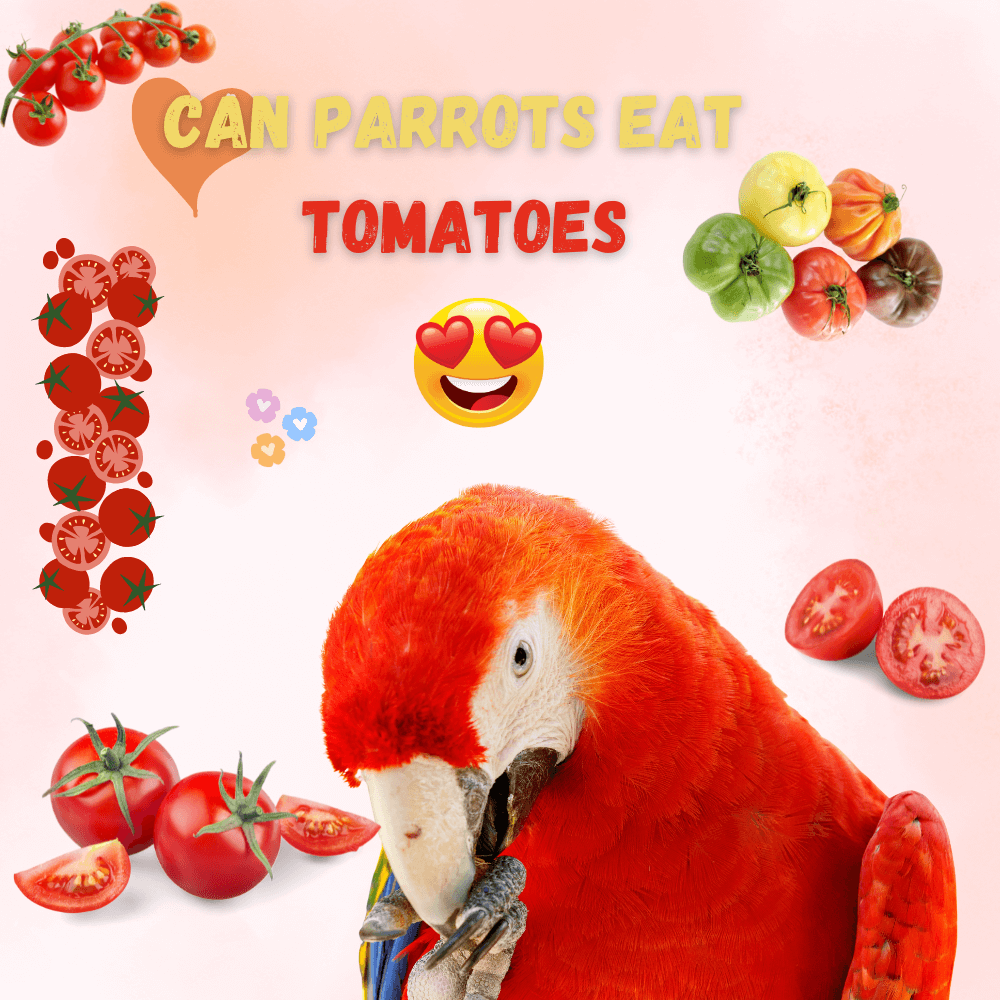Can parrots eat tomatoes: Yes, but only occasionally. Also, you should never give them green tomatoes because they are poisonous to animals.
Can parrots eat tomatoes? You’ve probably already asked yourself this question if you own one of these exotic birds. Although parrots primarily eat plant-based foods, not all fruits and vegetables are equally suitable for animals.
In the specific case of tomatoes, you’ve probably found conflicting information on the internet: some say that tomatoes are banned. Other voices say that nothing bad happens when parrots are given tomatoes to eat. But what is right now?
Opinions also differ among experts, so there is no clear answer to the question. But there are certain considerations that you should keep in mind. You can learn more about it in the following article.
Are tomatoes good for parrots?
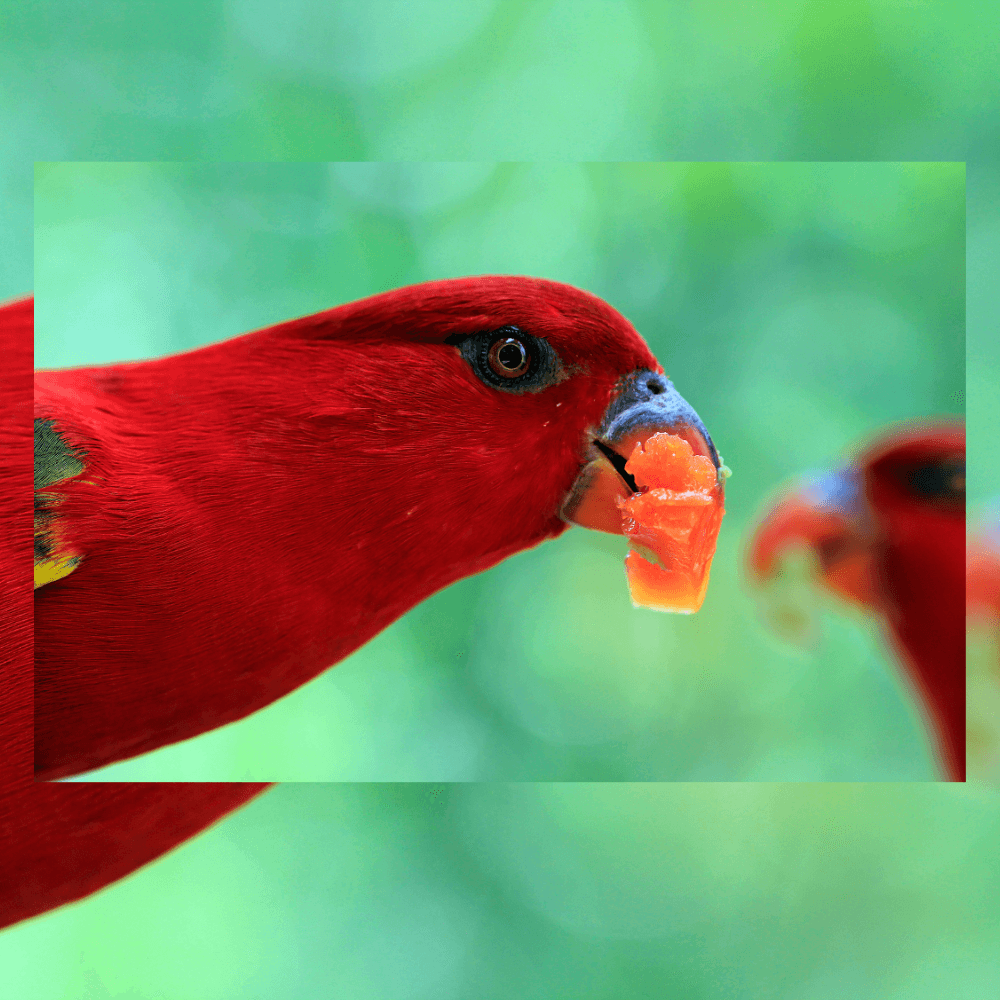
Parrots are omnivores. Aside from the odd unsuspecting insect, which some species are happy to eat in the wild, however, their diet consists entirely of seeds, fruits, and vegetables. When a parrot is kept outside of its natural habitat, the vegetables it finds in its native environment may not be available. This raises the question of whether it is allowed to eat certain foods that humans feed it.
Tomatoes, like all fruits, are a source of vitamins and minerals useful for the body. They mainly contain the vitamins C, B, and E, beta-carotene, and folic acid as well as the minerals potassium, magnesium, iron, and phosphorus. Parrots benefit from all of these micronutrients without any problems.
So can parrots eat tomatoes? The answer is yes, but if in doubt, eliminating them from the diet entirely will not harm the animal either. As with any other type of food, you should not offer them in large quantities or too often.
What types of tomatoes are toxic to parrots?
However, we need to clarify something on this issue. Tomatoes contain a substance called solanine, an alkaloid found in some nightshade plants, mainly in the leaves, fruit, and tubers. It is a bitter-tasting substance with pest-repellent properties that is part of the plant’s defense system against insects and other animals.
Solanine is toxic to parrots. However, it is found in higher concentrations of green tomatoes. As the fruit ripens, the concentration of solanine decreases. Therefore, while ripe tomatoes contain some solanine, they are suitable food for parrots. The dose of solanine it contains is too low to make parrots sick.
However, if you are in doubt about the amount of tomatoes your parrot can tolerate, do not offer them at all or only offer them occasionally.
However, green tomatoes should never be fed to parrots as they can damage the digestive system and even cause anemia, as the solanine has a hemolytic effect. The dose needed to cause poisoning in a bird depends on the amount of tomato ingested and the size of the bird.
What foods are toxic to parrots?
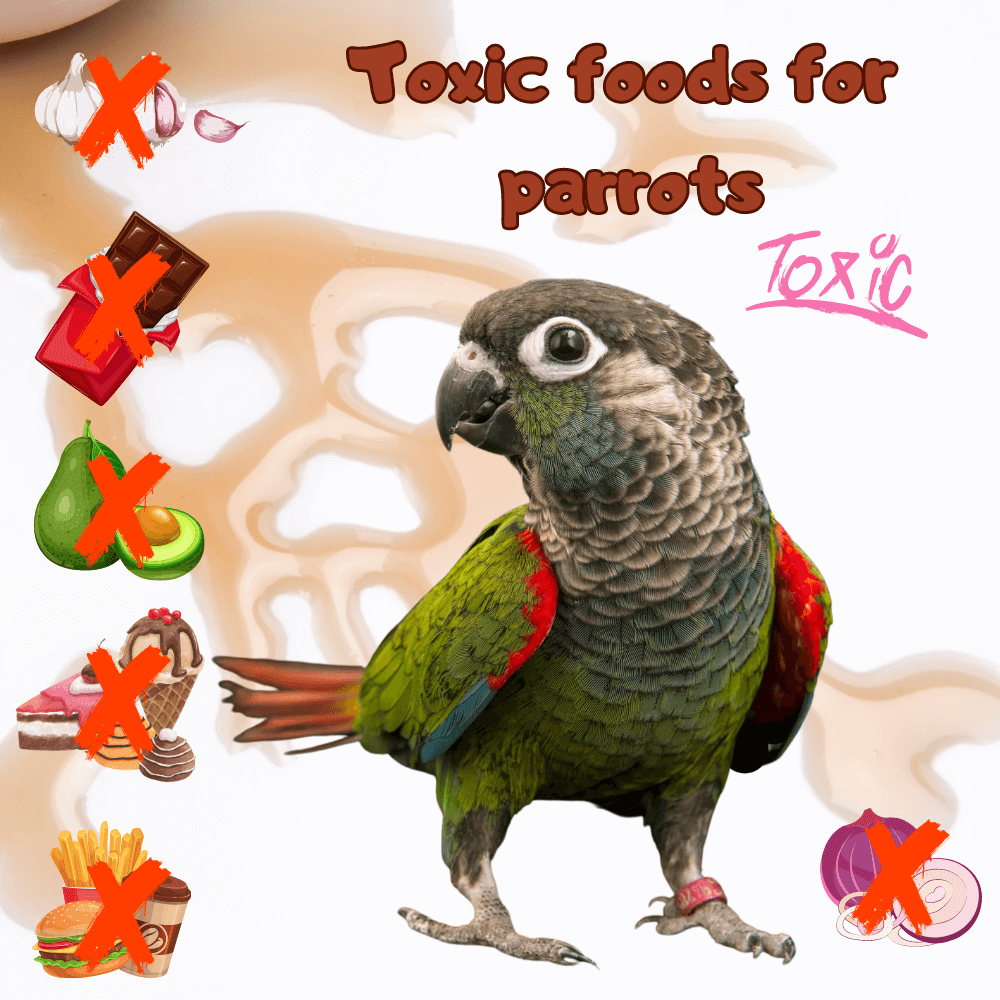
Although the question of whether or not parrots can eat tomatoes is debatable, there are other foods that are considered forbidden for these birds. The most important include:
- Sugar
- coffee and energy drinks
- alcohol
- Chocolate
- dairy products
- raw eggs
- Fast foods and snack foods manufactured for human consumption
- avocados
- onions
- eggplants
- Parsely
- raw vegetables
- raw root vegetables
- Meat
- Mushrooms
Healthy Food for Parrots
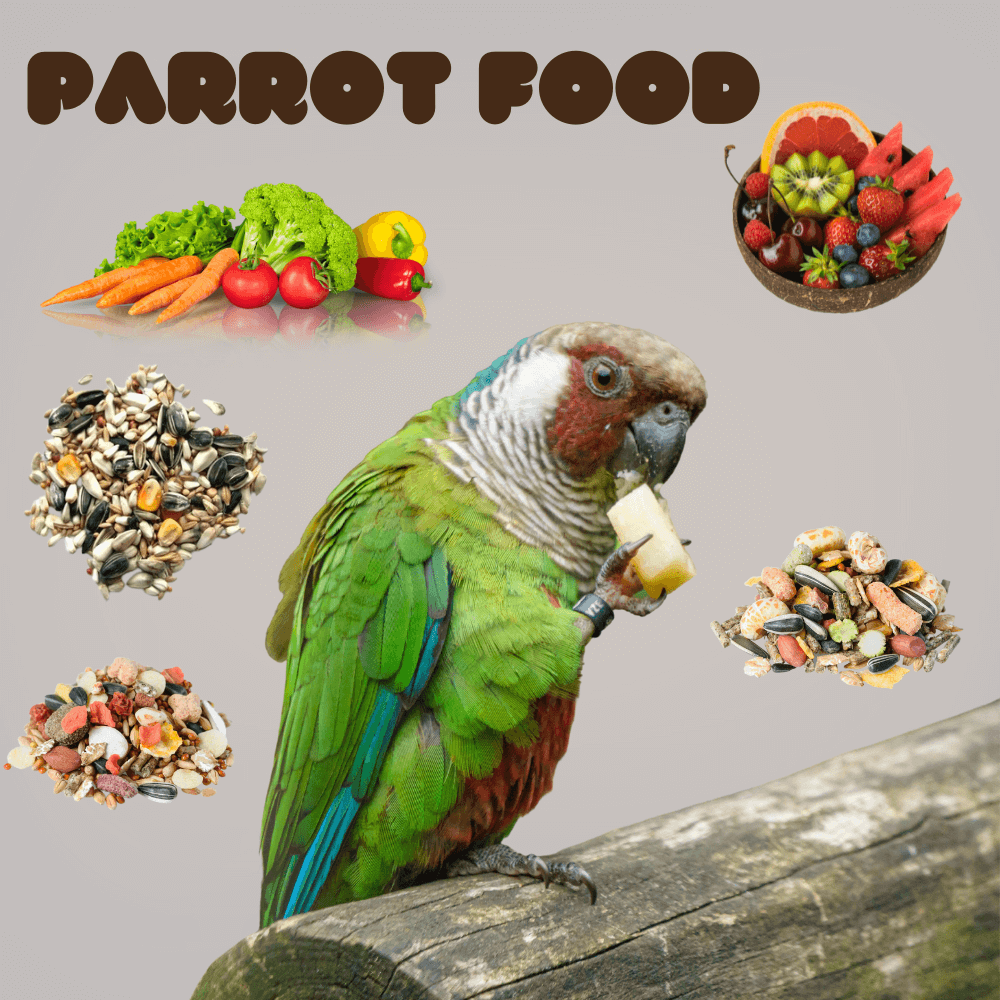
The diet of parrots is an important factor to maintain their quality of life and to ensure their health in the face of possible diseases or adverse events (stress from moving or sudden climate change). In addition, the effects of their diet are clearly reflected in their plumage, vitality, and character.
In captivity, always try to mimic the diet of a parrot in the wild so that the animal is getting all the nutrients it needs, even if it is not consuming the identical diet as in its natural environment.
Ideally, meals for parrots consist of the following three components:
- Seed Mix: A good mix will contain at least 10-12 different seeds, with sunflower seeds being reserved as a treat only. Too much can cause the bird to itch and possibly attack its plumage.
- Fruit, Legumes, and Vegetables: The remaining 40% of the menu consists of chopped fruit, soaked legumes (chickpeas, lentils and peas) and fresh vegetables. Find out which vegetables your bird can and cannot eat, as some of them can be poisonous.
- Nuts: They provide minerals and vegetable fats that are beneficial to your parrot. However, they should only be given as a reward and occasionally. Peanuts can be heavily contaminated with mold if you feed them with the shell.
It is best to split feeding into two sessions per day, one in the morning and one in the afternoon. This is in line with the habits of wild parrots, which tend to feed early in the morning and before dark.
There are also feed mixes that the fussiest parrots will happily consume. Here, however, one must consider the individual.
A balanced diet will keep your bird healthy and save you a lot of vet visits. As always, prevention is better than cure. If you have any doubts about whether or not parrots can eat tomatoes, cross them off the list and substitute other fruits for the amount provided. Above all, remember that keeping exotic species in captivity comes with great responsibility.

